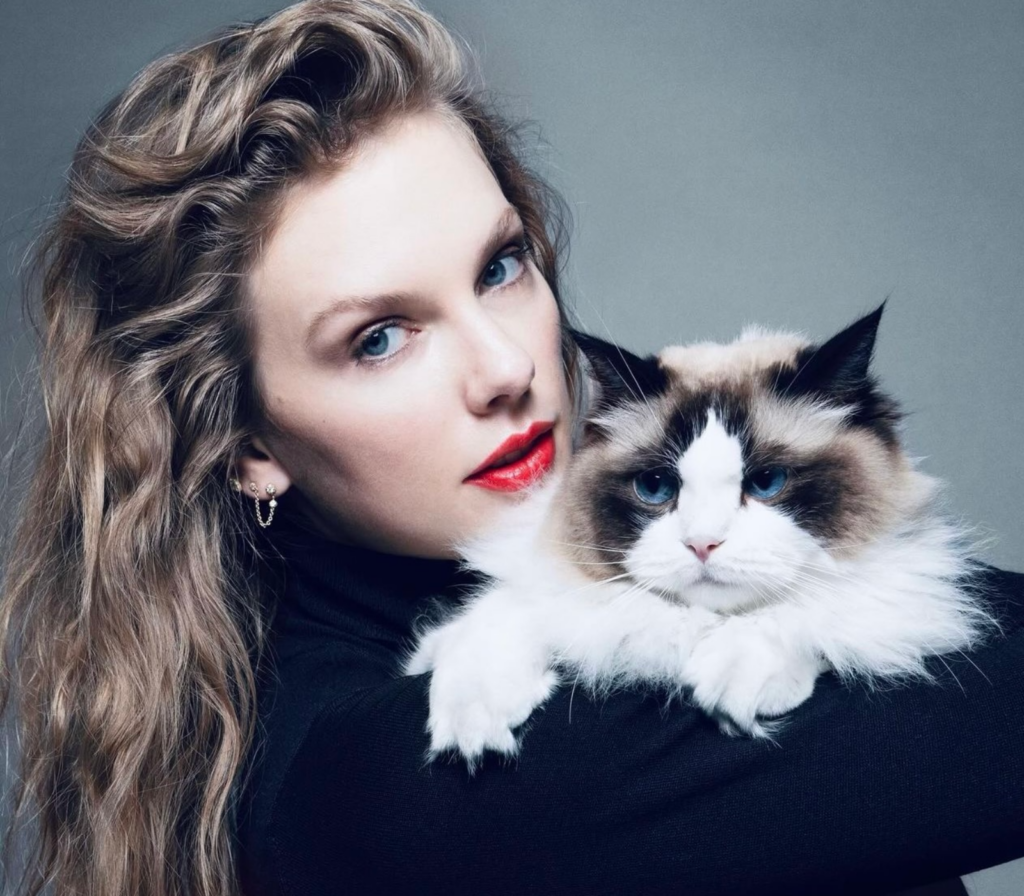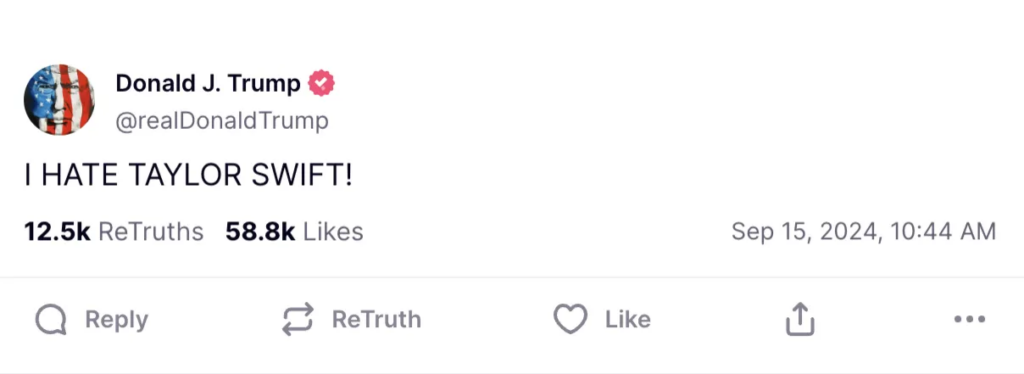Newsletter September 19, 2024
What Taylor Swift’s Endorsement Tells Us About the Youth Gender Gap

Taylor Swift’s endorsement of Kamala Harris was hardly unexpected. After all, Swift endorsed Biden over Trump just four years earlier. Yet, her latest announcement set off a cascade of commentary. It didn’t take long for Donald Trump to express his displeasure in a Truth Social post declaring: “I HATE TAYLOR SWIFT!”

As often happens, Trump made things worse for himself with intemperate comments. The post ensured another round of news coverage of Swift’s endorsement. It’s also politically unhelpful to pick fights with famous musicians and their massive and dedicated followings. It turns out that most Americans who like Taylor Swift are not actually single, cat-owning feminists.
Taylor Swift’s Cross-Partisan Appeal
Taylor Swift has long supported LGBTQ+ equality and reproductive rights, but her personal appeal transcends politics. In her announcement, Swift made explicit that she was supporting the Harris-Walz ticket for “standing up for LGBTQ+ rights, IVF, and a woman’s right to her own body.” Perhaps unsurprisingly, Swift is more popular among those on the political left. But she still remains well-liked with plenty of more conservative folks. Two-thirds (67 percent) of Democrats have a favorable view of the popstar, compared to more than half (52 percent) of independents and 44 percent of Republicans.
Despite unflattering caricatures of Swift fans in conservative media outlets, most Americans who like Taylor Swift are not liberal. A majority of “Swifties” and the Swiftie-adjacent identify as moderate or conservative. Less than one-third (32 percent) of Americans who view Swift positively are liberal. Thirty-six percent are moderate and 28 percent are conservative.
Plenty of Trump supporters have a favorable view of Taylor Swift. More than four in ten Trump voters (41 percent) have a positive view of Swift. Nearly half (49 percent) of female Trump supporters view her favorably. She is far more popular among Harris voters—71 percent have a favorable opinion of her—but those are impressive numbers given the current state of political polarization.
How Much Do Celebrity Endorsements Matter?
Despite Swift’s broad appeal and devoted fanbase, it’s unclear how much her endorsement will matter. Most Americans claim they do not care what movie stars, pop stars, and famous musicians think about politics. An ABC News poll conducted after Swift’s endorsement found that only 6 percent of voters said they were more inclined to support Harris because of it. Researchers who have studied the impact of celebrity endorsements have found that they mostly have a negligible impact.
Swift’s past political endorsements were not necessarily game-changers either.
In 2018, she endorsed Phil Bredesen, the Democrat running against Marsha Blackburn in her home state of Tennessee. Blackburn won easily in a race that was never competitive—although to be fair, Tennessee has become inhospitable terrain for Democrats. Shortly after the election, late-night comedian Stephen Colbert quipped, “I guess Tay-Tay didn’t have much sway-sway.”
But even if Swift cannot change minds, she may well engage inattentive voters who require some convincing to vote. Megan Duncan, a professor at Virginia Tech, suggested that “celebrity endorsements work best on getting people who are disengaged from the political process to pay attention, effectively widening the audience.” Swift’s ability to capture public attention is unparalleled. The economic impact of her Eras tour was “staggering”. When she started dating Kansas City Chiefs’ tight end Travis Kelce and attending games regularly, NFL viewership spiked. Her initial endorsement post garnered more than 11 million likes, and her message to get registered resulted in nearly half a million visits to vote.gov.
Whatever political advantage Swift’s endorsement provides may be undercut by Harris’s continued underperformance among young men. The endorsement is unlikely to help close the gender gap among young voters. While a majority of Gen Z women have a favorable view of Swift, only 35 percent of Gen Z men feel the same. Nearly six in ten (59 percent) Gen Z men have a negative view of Taylor Swift.
Although it has not garnered the same attention, Trump has cultivated substantial support among male social media influencers with their own impressive followings. Shortly after Swift backed Harris, Trump appeared with Tiktoker Bryce Hall and the NELK Boys at a Las Vegas Rally. It’s a strategy that may be paying off. The latest ABC News poll found that among likely voters, young men are closely divided in their support between Harris (51 percent) and Trump (48 percent). Young women prefer Harris over Trump by a nearly 40-point margin (68 percent vs. 30 percent, respectively). That’s an astonishing gap. It may be that Taylor Swift’s endorsement, and Trump’s support from various social media bros, may not influence young voters, but rather reflect the current and unprecedented political divide between young men and women.
Read more on American Storylines








